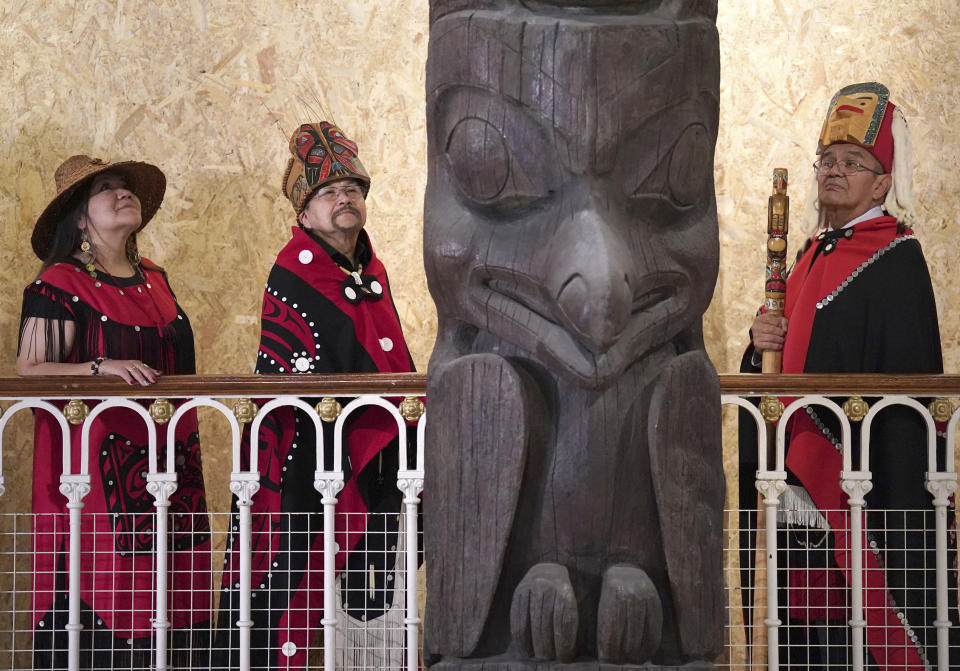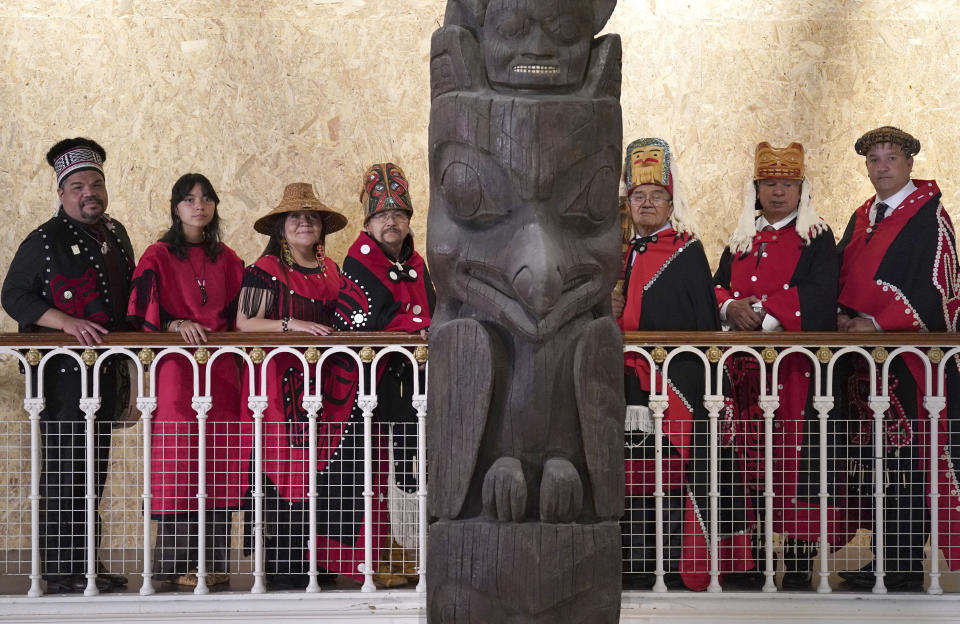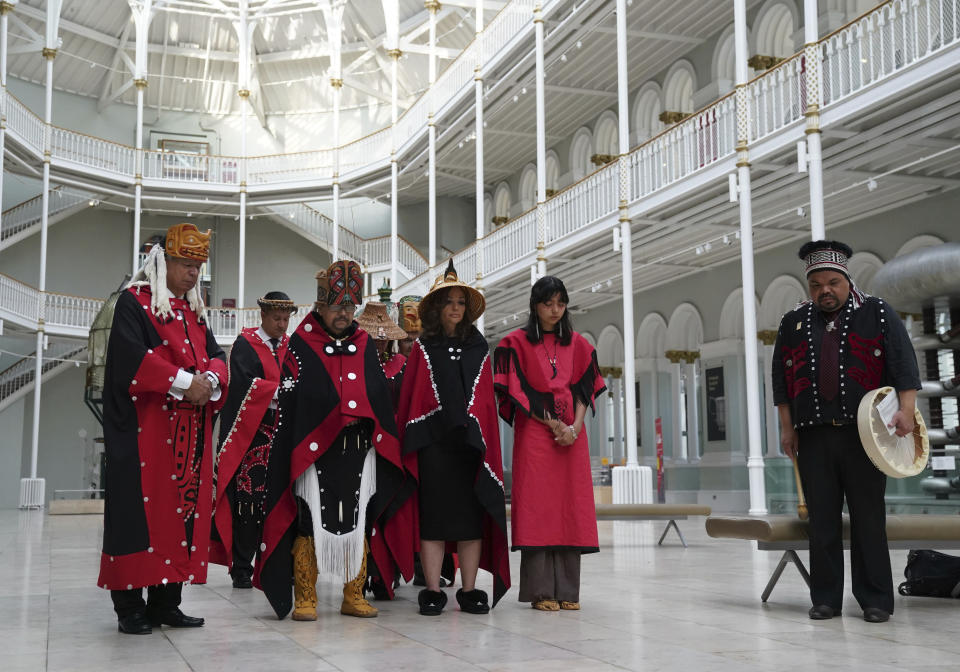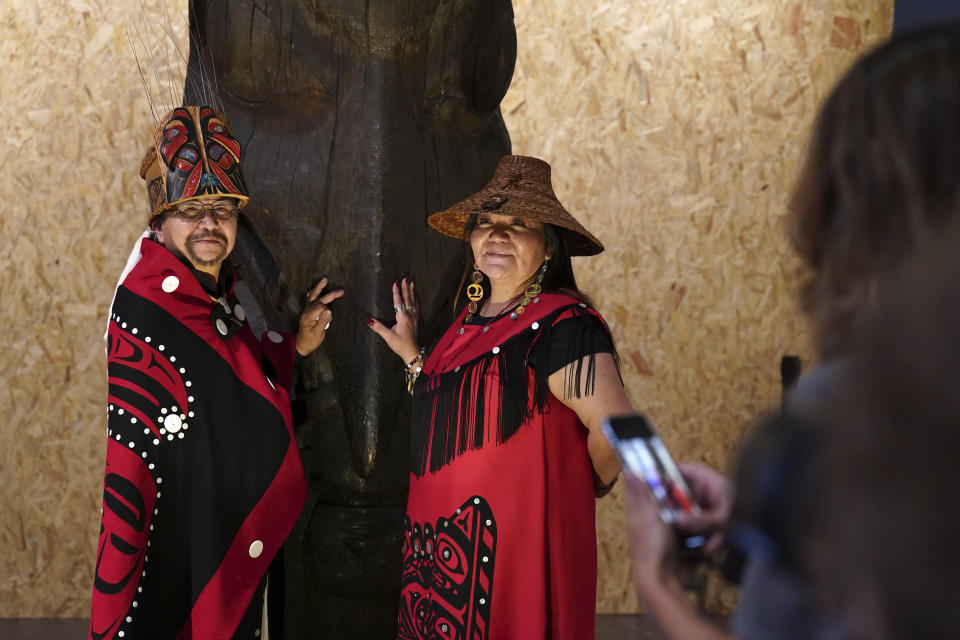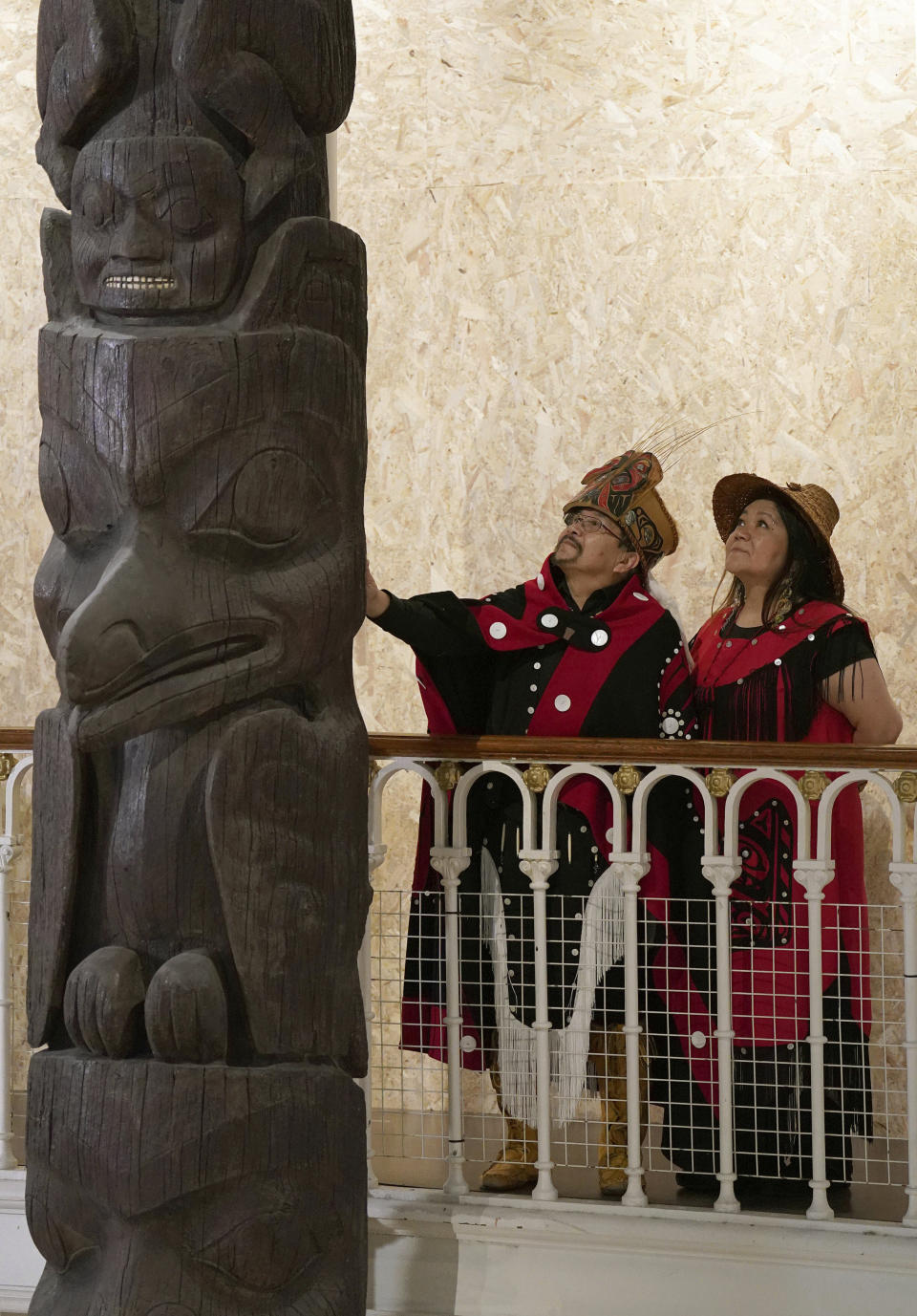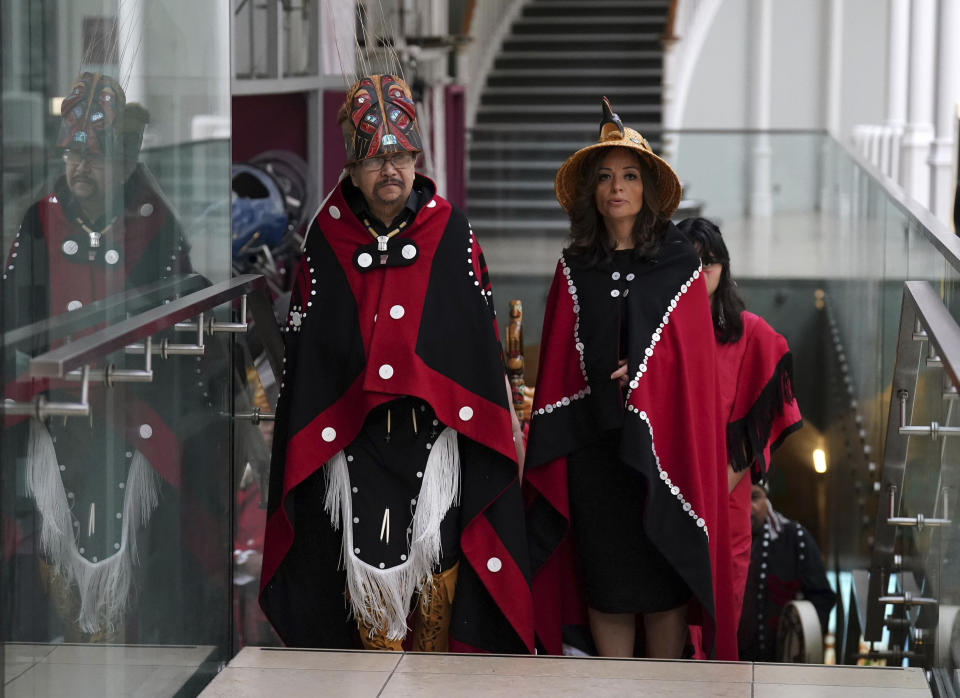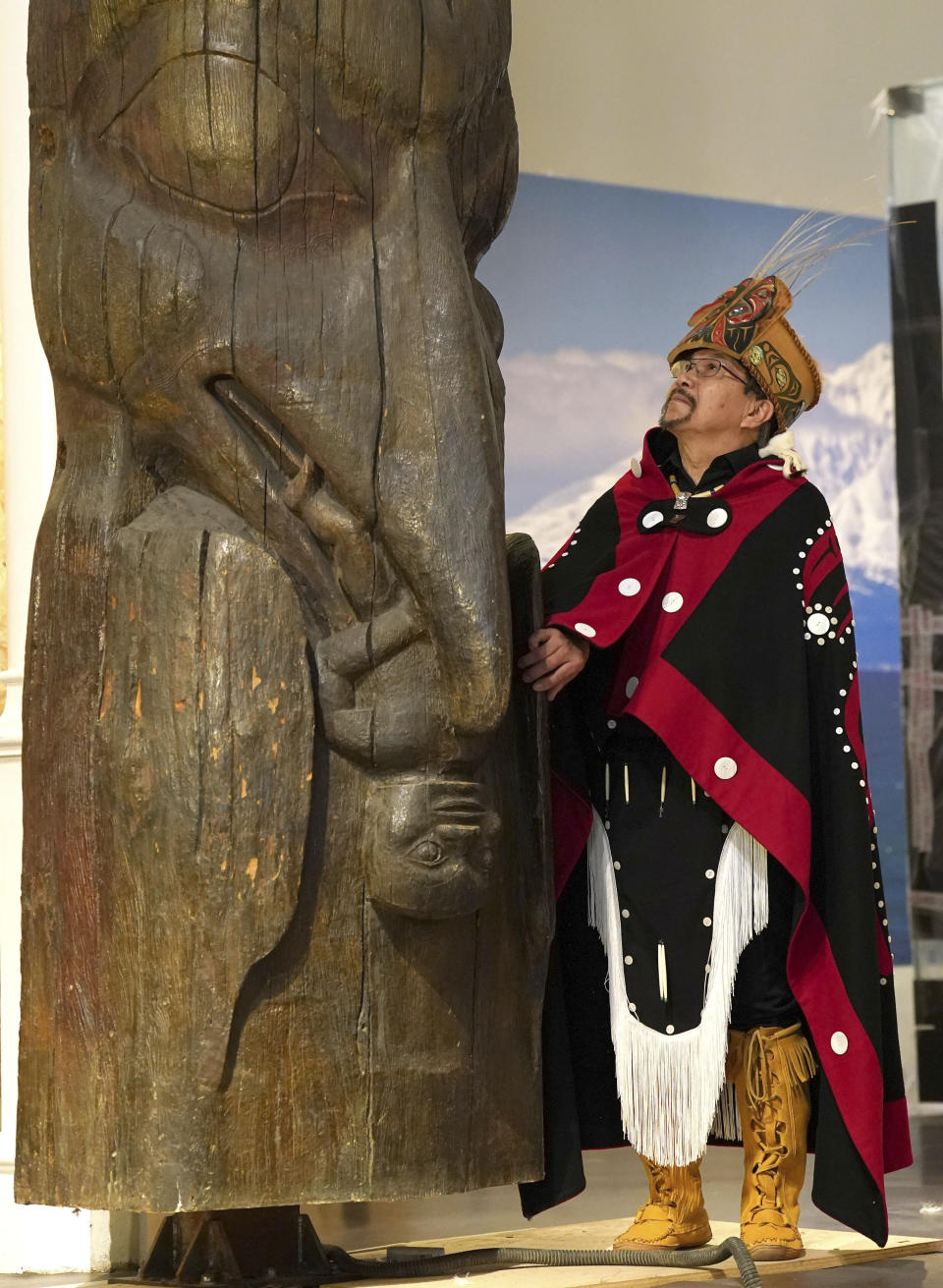Ceremony marks start of journey home for Indigenous totem pole taken to Scotland a century ago
LONDON (AP) — Members of a Canadian First Nation held a spiritual ceremony on Monday at a Scottish museum to begin the homeward journey of a totem pole stolen almost a century ago.
The 11-meter (36-foot) pole is being restored by the National Museum of Scotland to the Nisga’a Nation in northern British Columbia — one of the first times a British museum has returned artifacts to any of North America’s Indigenous peoples.
The museum agreed last year to return the pole, which has been on display in the Edinburgh building since 1930. Nisga’a researchers say it was taken without consent in 1929 by an anthropologist who sold it to the museum.
Chief Earl Stephens, who has the Nisga’a cultural name Sim’oogit Ni’isjoohl, said that “in Nisga’a culture, we believe that this pole is alive with the spirit of our ancestors.”
“After nearly 100 years, we are finally able to bring our dear relative home to rest on Nisga’a lands,” he said.
Carved from red cedar in the 1860s, the pole includes family crests and animal and human figures. It commemorates the Nisga’a warrior Ts’aawit and stood outside his relatives’ home for 70 years before being removed while villagers were away for the annual hunting season.
After Monday’s ceremony attended by delegates from the Nisga’a, the museum and the Scottish and Canadian governments, workers will erect scaffolding around the pole, which will be carefully removed, packed and flown next month on a Canadian air force plane to British Columbia. It is slated to go on display in the Nisga’a Museum in the Nass Valley alongside scores of other artifacts recovered from museums.
Amy Parent, a member of the Nisga’a Nation and associate professor of education at Simon Fraser University, said it was “a very historic moment for our nation and for Scotland.”
Museum director Chris Breward said teams had been working for months on “the complex task of carefully lowering and transporting” the pole.
“We are pleased to have reached the point where that work is now underway, and we are delighted to have welcomed the Nisga’a delegation to the museum before we bid the pole farewell,” he said.
U.K. museums face multiple calls to return items taken from around the world during the period of the British Empire, including friezes that once adorned the Parthenon in Athens and the Benin bronzes from West Africa.

